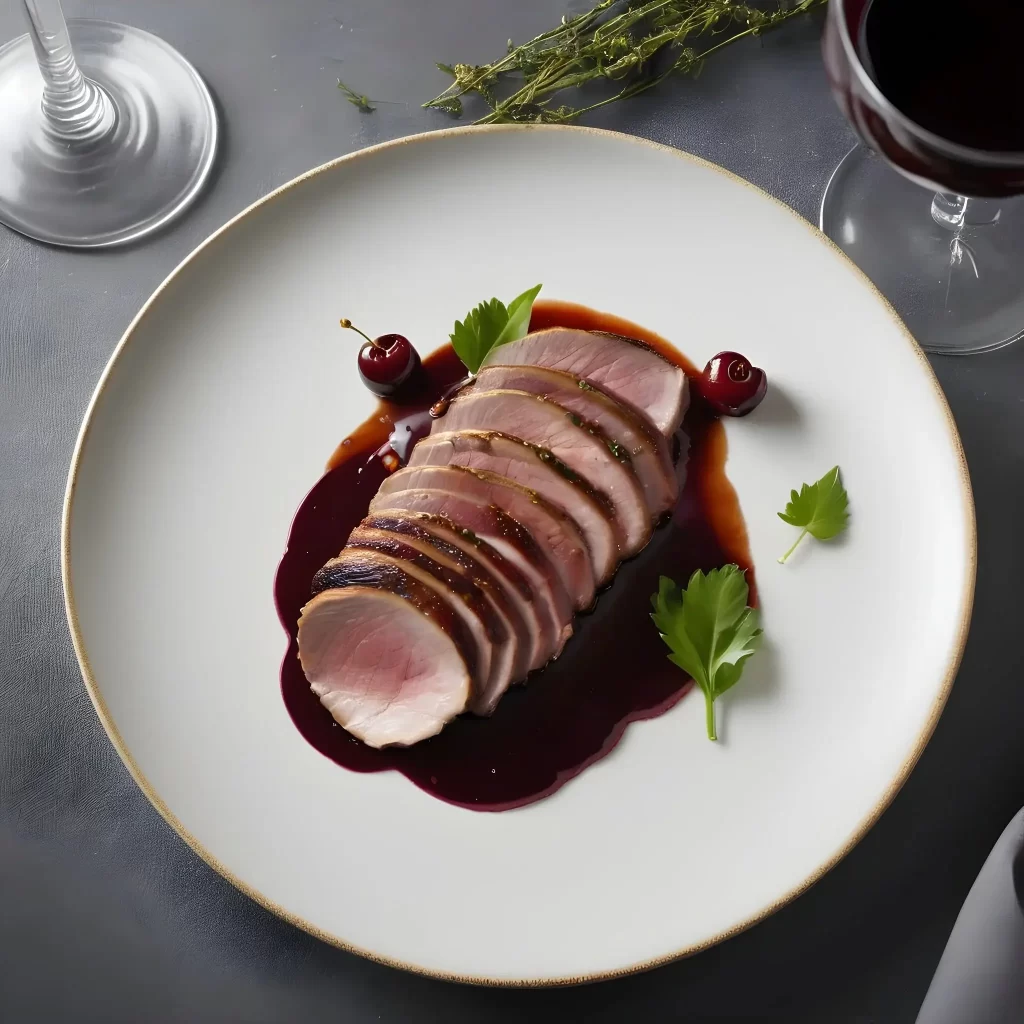In this article, we’ll delve into the numerous health benefits, its impact on athletic performance, its unique characteristics compared to other poultry and meats, and provide some delicious recipes to inspire your next duck feast.
Duck Delights: Exploring the Marvels of Duck
Health Benefits:
- Protein Powerhouse: Duck is packed with high-quality protein, essential for muscle repair and growth, making it a valuable addition to any athlete’s diet.
- Rich Flavor, Less Fat: Compared to other meats like beef or lamb, duck offers rich flavor with less saturated fat, making it a heart-friendly option for athletes focused on maintaining a balanced diet.
- Nutrient-Rich: Duck is a good source of essential nutrients such as iron, zinc, selenium, and B vitamins, supporting overall health and well-being, vital for peak athletic performance.
Athletic Performance:
- Muscle Recovery: The protein in duck aids in muscle repair and recovery post-exercise, helping athletes bounce back faster and stronger.
- Energy Boost: Duck’s nutrient profile, including iron and B vitamins, supports sustained energy levels during intense physical activity, keeping athletes fueled and focused.
- Muscle Building: With its protein density and nutrient richness, duck contributes to the development of lean muscle mass, crucial for enhancing athletic performance and endurance.
Duck Compared to Other Poultry:
Duck presents a distinct nutritional profile when compared to various types of poultry. While chicken is often praised for its leanness, duck offers a unique balance of flavor and nutrients.
Duck tends to have a higher fat content than chicken, but much of this fat is the healthier monounsaturated and polyunsaturated variety, including omega-3 fatty acids. This contributes to heart health and inflammation reduction, which can be advantageous for athletes.
Additionally, duck provides higher levels of certain nutrients such as iron and zinc compared to chicken, making it a valuable dietary source for maintaining optimal energy levels and overall health. However, due to its higher fat content, duck may not be the best choice for those strictly watching their fat intake.

Different Parts of the Duck:
Duck Breast:
Known for its succulence and richness, duck breast is a prime cut that’s perfect for pan-searing or grilling. It offers a balance of tender meat and flavorful fat.
Duck Legs and Thighs:
These cuts are prized for their tenderness and depth of flavor. Slow-cooked or braised, duck legs and thighs become meltingly tender, making them ideal for hearty dishes.
Duck Wings:
Crispy and flavorful, duck wings are often enjoyed as appetizers or snacks. They can be seasoned and roasted to perfection, offering a delightful finger-food option
Duck Confit:
A traditional French delicacy, duck confit involves slow-cooking duck legs in their own fat until they become incredibly tender and flavorful. This gourmet dish is often served with accompaniments like potatoes or salads for a luxurious dining experience
Ways to Enjoy Duck:
- Pan-Seared Duck Breast with Cherry Port Sauce
- Slow-Cooked Duck Legs with Orange Glaze
- Crispy Duck Wings with Spicy Honey Mustard Dip
- Duck Confit Salad with Mixed Greens and Raspberry Vinaigrette

Nutritional Information (per 100g serving):
| Nutrient | Duck Breast | Duck Legs | Duck Wings | Duck Confit |
|---|---|---|---|---|
| Protein | 20g | 18g | 16g | 19g |
| Fat | 4g | 14g | 10g | 15g |
| Saturated Fat | 1g | 4g | 3g | 4g |
| Cholesterol | 80mg | 90mg | 75mg | 85mg |
| Carbohydrates | 0g | 0g | 0g | 0g |
| Fiber | 0g | 0g | 0g | 0g |
| Sodium | 50mg | 70mg | 60mg | 65mg |
| Iron | 2mg | 1.5mg | 1.2mg | 1.8mg |
| Vitamin A | 10 IU | 8 IU | 6 IU | 9 IU |
| Vitamin C | 0mg | 0mg | 0mg | 0mg |
| Calcium | 10mg | 12mg | 8mg | 11mg |
FAQs:
Q: Is duck skin healthy to eat?
A: While duck skin contains some fat, it also offers flavor and texture to the dish. Moderation is key, but removing the skin before cooking can reduce the fat content while still preserving the rich flavor of the meat.
Q: Can duck be part of a low-fat diet?
A: While duck does contain more fat than some other protein sources, it can still be enjoyed as part of a balanced diet. Opting for leaner cuts like duck breast and moderating portion sizes can help fit duck into a low-fat eating plan.
Q: Is duck high in cholesterol?
A: Duck does contain cholesterol, but it can be enjoyed as part of a balanced diet. Moderation is key, especially for individuals with specific dietary concerns.
Q: Can duck help with muscle recovery?
A: Yes, duck is a rich source of protein, which aids in muscle repair and recovery post-exercise. Including duck in your diet can support your athletic performance and overall well-being.